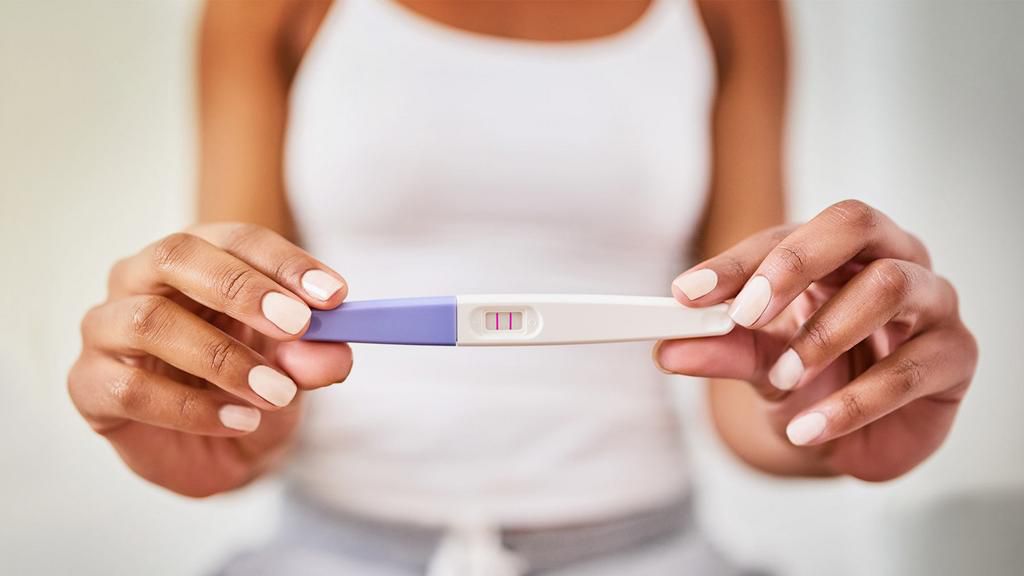How smoking is connected to ectopic pregnancies
![Unrecognisable woman embracing a pillow in a bedroom [Image Credit: Alex Green]](https://image.api.sportal365.com/process/smp-images-production/pulse.ng/27072024/df7fd585-117f-428b-b8e7-c690d02e0ba3?operations=autocrop(700:467))
Understanding ectopic pregnancies is crucial for women of childbearing age. Being aware of the symptoms, risk factors, and preventive measures can significantly improve a woman's pregnancy experience.
What is an ectopic pregnancy?
An ectopic pregnancy occurs when a fertilised egg implants and grows outside the main cavity of the uterus, most commonly in a fallopian tube, which is why it's often called a tubal pregnancy.
This occurrence could be due to inflammation, infection, or damage to the fallopian tubes, making it harder for the egg to move or implant correctly.
Since the fallopian tubes aren't designed to host the growing embryo, this pregnancy cannot proceed normally and poses serious health risks if not addressed promptly.

If diagnosed early, a medicine called methotrexate can be used to stop the embryo's growth and allow the body to absorb it. In more advanced cases or when the patient's health is at risk, surgery may be necessary to remove the ectopic pregnancy. Laparoscopy, a minimally invasive surgery, is commonly used.
Recognising symptoms of an ectopic pregnancy
Early detection of an ectopic pregnancy can be life-saving. Some recognisable symptoms include:-
- Sharp or stabbing pain in the abdomen or pelvis, which may vary in intensity and may come and go or be continuous.
- Vaginal bleeding or spotting, differing from a normal period, often darker or watery.
- Shoulder pain, which occurs if bleeding into the abdomen has occurred, irritating the diaphragm.
- Gastrointestinal symptoms similar to indigestion or diarrhea.
- Dizziness, weakness, or fainting, indicating potential internal bleeding.

If you experience any of these symptoms, especially if you know you could be pregnant, it is best to contact your doctor immediately.
Who is most prone to experiencing an ectopic pregnancy?
Several factors can increase the risk of an ectopic pregnancy:
- A history of ectopic pregnancy, pelvic surgery, or pelvic inflammatory disease.
- Certain fertility treatments, such as IVF.
- Smoking, which can affect the fallopian tubes' ability to move the egg toward the uterus.
- Age, particularly for women 35 and older.
- Conditions that affect the fallopian tubes, including previous infections or surgery.
How to prevent ectopic pregnancies
While not all ectopic pregnancies can be prevented, you can reduce your risk by:
- Limiting the number of sexual partners and using condoms to decrease the risk of sexually transmitted infections (STIs), which can lead to pelvic inflammatory disease.
- Quitting smoking, as it significantly increases the risk of an ectopic pregnancy.
- Discussing your risk factors with a healthcare provider, especially if you're trying to conceive or have had pelvic or abdominal surgery.
If you suspect you might have an ectopic pregnancy, or if you're experiencing unusual symptoms, don't hesitate to consult your healthcare provider. Early intervention can be lifesaving.
This content was generated by an AI model and verified by the author.
)
![The truth about waist traners revealed [Credit: The Corset Center]](https://image.api.sportal365.com/process/smp-images-production/pulse.ng/13082024/663460ae-e4e0-4e3d-bfb5-364a61ff8afe?operations=autocrop(640:427))
![Here are 7 effective ways to control premature ejaculation [Credit: NetDoctor]](https://image.api.sportal365.com/process/smp-images-production/pulse.ng/13082024/f6fed057-1754-4a88-9ca5-6c13b67c0cfc?operations=autocrop(236:157))
![Here are 7 foods you need to eat for increased sexual stamina [Credit: Improving Men's Libido]](https://image.api.sportal365.com/process/smp-images-production/pulse.ng/13082024/4914d2bb-8cb1-4618-bf94-0b4b7731a10f?operations=autocrop(236:157))
![What are the causes of low sex drive in women and here’s how to increase it [Credit: Verywell Family]](https://image.api.sportal365.com/process/smp-images-production/pulse.ng/13082024/eb9deac7-dc68-4a01-8885-7317d43af034?operations=autocrop(236:157))
![Sperm- killers, here are 7 things that men need to watch out for [Credit: The Mary Sue]](https://image.api.sportal365.com/process/smp-images-production/pulse.ng/13082024/6b5ddea4-6aca-4b19-9cfd-730f94b6e876?operations=autocrop(236:157))
![7 common things that shouldn't be found in your bedroom. [bustle]](https://image.api.sportal365.com/process/smp-images-production/pulse.ng/31072024/f82f0b15-a166-4c63-bf98-c16ae77114f1?operations=autocrop(236:157))
)
)
![Here are 5 natural ways to combat erectile dysfunction [Credit: Video Blocks]](https://image.api.sportal365.com/process/smp-images-production/pulse.ng/13082024/5e3dc364-7318-40cb-a720-4ad5986ea32b?operations=autocrop(236:157))
)
)
)
)
![2026 Golden Globes: Teyana Taylor, Timothee Chalamet and the biggest winners [FULL LIST]](https://sportal365images.com/process/smp-images-production/pulse.ng/12012026/002666db-358d-4deb-9510-84cdb274ffda.png?operations=autocrop(112:112))
)
)